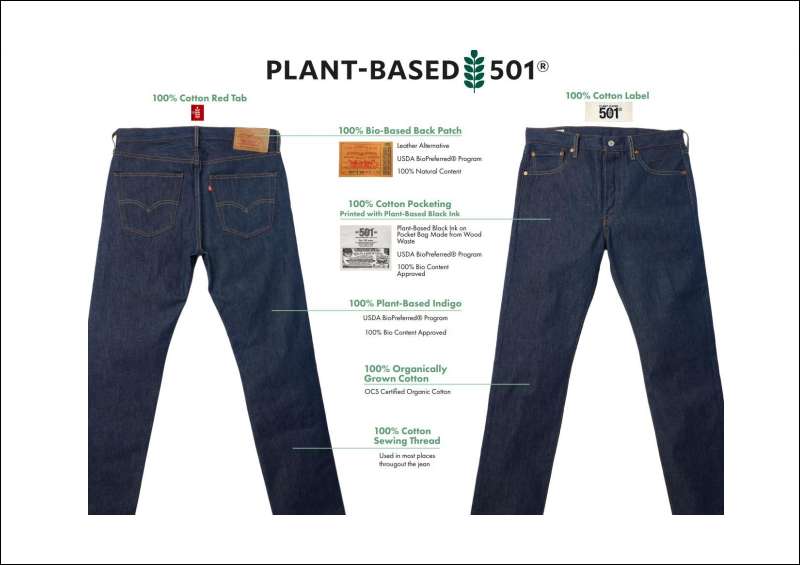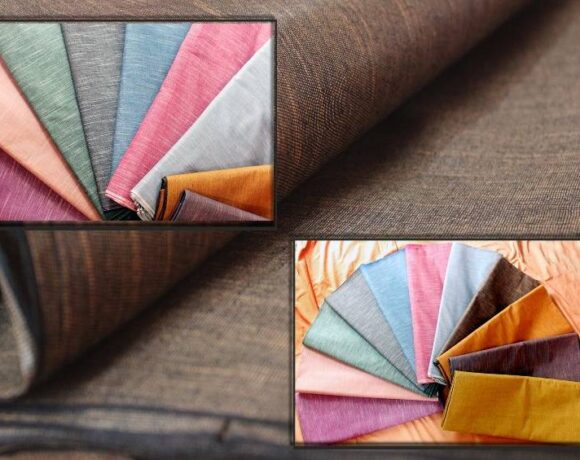Levis Celebrating 150 Years Of ‘501’ With Innovative Fabric

To celebrate the 150th anniversary of the iconic Levi’s 501 jeans, Levi Strauss is launching a hemp-cotton blend Selvedge 501 in later summer 2023.
The plant-based 501 is made of at least 97 percent plant-based materials, with all certified organic cotton, natural dyestuff, a plant-based patch and ink made from wood waste.
“These jeans are an indication of what the industry could look like in the years ahead given the push to minimise synthetic materials derived from fossil fuels and the need to make more garments with renewable inputs rather than finite resources,” Levi Strauss said in a press release.
The fabric of the Plant-Based 501 is made with 100 percent OCS-certified organically grown cotton and dyed with plant-based indigo from Stony Creek Colors.
The garment back patch is made from a material called Mirum by NFW, and is fashioned from 100 percent biobased, plastic-free inputs generating no effluent in production.
The internal pocket bag is 100 percent cotton and printed with BioBlack TX, a plant-based black pigment made from wood waste, manufactured in a closed-loop system and developed by Nature Coatings.
“Woven labels and sewing threads in non-critical areas of the garment are likewise 100 percent cotton, while each pair contains at least 97 percent bio-based content based on components weight measured against overall garment weight,” the jeans brand informed.
Also being highlighted as part of the 150th anniversary celebration is the Circular 501, first released in 2022.
This jean is made with a mix of organic cotton and Renewcell’s pioneering Circulose fibre, viscose made in part from recycled denim and other forms of textile waste.
The formulation allows the brand to use far fewer natural resources and chemicals in the production process.
Each material component aligns with a strict single-fiber strategy that enables efficient recycling at the end of the garment’s useful life.
By replacing parts of the garment that would normally be made from synthetic fibres like polyester pocketing, threads, labels, and interfacing with 100 percent cotton alternatives, Levis has removed synthetic elements that would otherwise disrupt the cotton recovery process.















